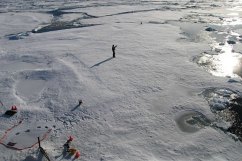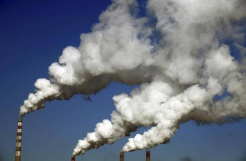Here's a fact that may silence doubters of global warming triggered by human activity.
As widely expected, 2015 was declared the hottest year on record ever since the authorities started keeping track of global temperatures in 1880.
It no longer came as a surprise that last year's temperature exceeded the 2014 record, since 10 out of the 12 months in 2015 became the hottest respective months on record, according to the U.S. National Oceanic and Atmospheric Administration (NOAA) and the National Aeronautics and Space Administration (NASA)
In addition to this, last month was markedly hotter and wetter for the Northern Hemisphere including the Unites States, where some areas experienced massive floodings during the holidays due to unusually heavy rains.
Last December was in fact the first month on record to ever reach 2 degrees Fahrenheit above normal for the globe.
Although news of 2015 being the hottest year may no longer be jaw-dropping for many who experienced the scorching heat last year, the margin by which it exceeded 2014 records is still quite noteworthy.
Last year, the Earth experienced an average temperature that was 1.62˚F (0.90˚C) above the 20th century average. This figure is 20 percent higher than the record in 2014.
So why exactly did thermometer readings rise last year? One factor, according to NASA and NOAA, is the prevailing El Niño phenomenon, or the significant warming over topical ocean waters in the Pacific.
El Niño, however, does not just warm the ocean. It also releases excess heat into the atmosphere, causing scorching temperatures experienced all over the world.
NASA, however, pointed out that heat last year was "largely driven by increased carbon dioxide and other human-made emissions into the atmosphere."
In an interview with The New York Times, Gavin A. Schmidt, head of NASA's climate-science unit called the Goddard Institute for Space Studies, explained that the record-high temperature last year all the more proves the fact that there is indeed man-made global warming.
"Is there any evidence for a pause in the long-term global warming rate? The answer is no. That was true before last year, but it's much more obvious now," Schmidt told the newspaper.
Michael E. Mann, a climate scientist at Pennsylvania State University, meanwhile explained that back-to-back warm years were very rare, about one chance in every 1,500 pairs of years.
















